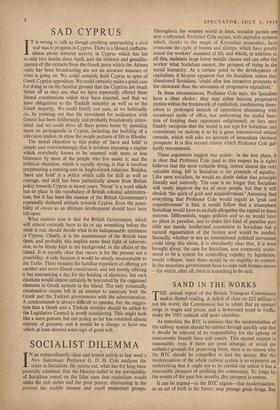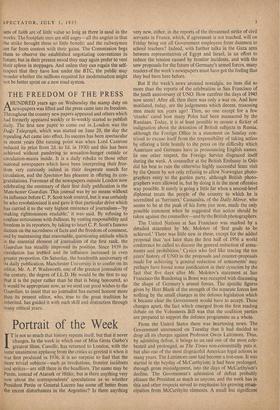SAND IN THE WORKS
THE annual report of the British Transport Commission makes dismal reading. A deficit of close on £12 million is' not the worst; the Commission has to admit that an upward surge in wages and prices, and a downward trend in traffic, make the 1955 outlook still more cheerless.
As remedies, the BTC is anxious that the modernisation of the railway system should be carried through quickly and that it should be relieved of its responsibility for the upkeep of uneconomic branch lines and canals. This second request is reasonable; even if there are good strategic or social (or aesthetic) grounds for preserving them, there is no reason why the BTC should be compelled to find the money. But the modernisation of the whole railway system is so expensive an undertaking that it ought not to be carried out unless it has a reasonable prospect of profiting the community. To judge by the events of the past few months, this prospect is remote.
It can be argued—as the BTC argues—that modernisation, as an act of faith in the future, may presage great things. But acts of faith are of little value so 1°4 as there is sand in the works. The footplate men are still angry—all the angrier in that he strike brought them so little benefit; and the railwaymen are far from content with their gains. The Commission begs them to observe the established negotiating conventions in future; but in their present mood they may again prefer to vent their spleen in stoppages. And unless they can regain the self- respect that they have lost under the BTC, the public may wonder whether the millions required for modernisation might not be better spent on a new road system.















































 Previous page
Previous page